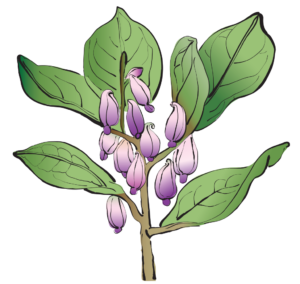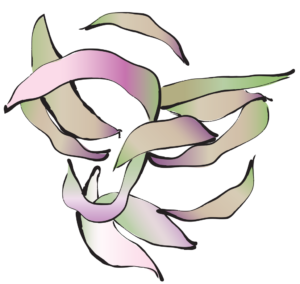Bai Bian Dou
English Name: dolichos nut, white lablab bean, white hyacinth bean
Pharmaceutical Name: Semen Lablab Album
Medica Category: Qi-Tonifying Herbs
Properties: Bai Bian Dou enters the Spleen and Stomach channels; it is sweet in nature and slightly warm in temperature. It is considered slightly toxic in its raw form (due to the presence of hemagglutinin A). Heat-treating of Bai Bian Dou renders this compound inert.

What is Bai Bian Dou?
The Chinese Herb Bai Bian Dou is the white hyacinth bean (aka dolichos or lablab bean– Dolichos lablab L.). Hyacinth bean plants are climbing vines in the Leguminosae (Bean or Pea) family and are widely cultivated throughout tropical and sub-tropical regions of the world as food. In TCM, the white bean is used. It is harvested in the fall when ripe and is used medicinally either in its raw, unprocessed form (see safety note below) or is dry-fried depending on the which actions are needed.

Traditional Chinese Medicine (TCM) Therapeutic Actions of Bai Bian Dou:
Bai Bian Dou strengthens the Spleen and resolves accumulated dampness and is most suitable for weak, chronic, or convalescing individuals whose systems cannot handle stronger qi-tonics (i.e. one starts with Bai Bian Dou and works up to stronger qi-tonics as the course of treatment progresses). Clinical presentation of Spleen deficiency includes such symptoms as poor appetite, fatigue/lack of energy, and loose stools. The tongue will often be puffy with teeth marks along the edges and a crack down the middle.
Bai Bian Dou strengthens the Spleen to address excessive vaginal discharge caused by accumulated dampness.
Bai Bian Dou treats nausea, vomiting, and diarrhea by clearing dampness that comes from Summer Heat. Additional herbs are need to clear heat in these cases.
Bai Bian Dou clears toxins and is used to address food poisoning, alcohol poisoning, or poisoning from the ingestion of other types of toxins (such as arsenic, calomel, pufferfish etc…).
–safety/clinical notes:
Gross overdose of raw Bai Bian Dou is considered toxic; heat processing renders the toxic compounds in the raw bean inert.
